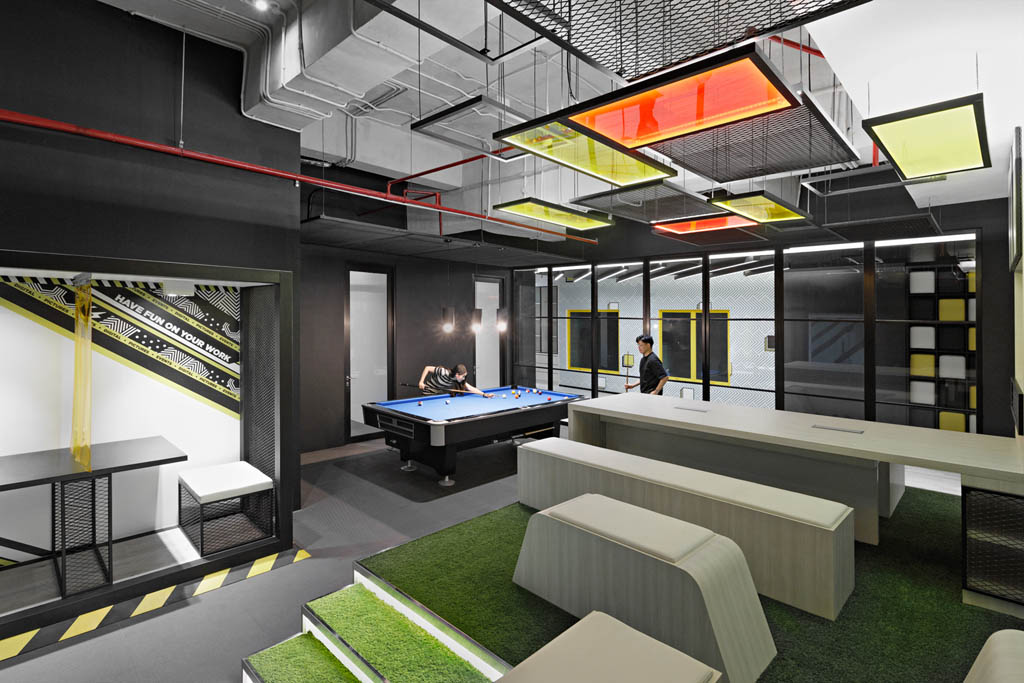
In the bustling urban landscape of Seoul, where towering skyscrapers and neon lights dominate the skyline, finding a peaceful space for spiritual reflection can be a challenge. That’s where Mushola Lotte Avenue comes into play—an often-overlooked but essential facility nestled within one of the city’s most prominent commercial hubs.Located inside the expansive Lotte Avenue complex in Jamsil, this modest yet well-maintained prayer space serves the growing Muslim community in South Korea, offering a quiet retreat amid the constant motion of shoppers, tourists, and business professionals.
What Is Mushola Lotte Avenue?
The term “mushola” refers to a small Islamic prayer room or space commonly found in public places across many Muslim-majority countries. In South Korea, where mosques are relatively few and far between outside major Muslim neighborhoods, musholas like the one at Lotte Avenue provide a crucial service for Muslim visitors and employees.Mushola Lotte Avenue is strategically placed within the Lotte Avenue building, which is part of the larger Lotte World complex—a popular destination that includes a shopping mall, hotel, amusement park, and convention center. The proximity to international visitors makes this prayer room especially valuable for travelers who need a clean, accessible place to perform their daily prayers.Unlike full-scale mosques, musholas typically do not have imams or host congregational prayers. Instead, they offer wudu (ablution) facilities, prayer mats, and directional markers toward Mecca—making them ideal for individuals who are on the go.
Why Mushola Lotte Avenue Matters
As South Korea continues to open its doors to global tourism and international business, the need for inclusive religious accommodations has grown significantly. Cities like Seoul, which once had limited facilities for non-Christian faiths, are now adapting to better serve a diverse population.For Muslim travelers, finding a halal-friendly environment or a designated prayer area can be stressful, especially when visiting unfamiliar cities. The presence of Mushola Lotte Avenue alleviates some of that anxiety by providing a clean, respectful, and easily accessible space for prayer.This is particularly important given that Lotte Avenue sees high foot traffic from both local and international visitors. Whether you’re a shopper taking a break, a business traveler attending a conference at the nearby Lotte Hotel, or a tourist exploring Jamsil, having access to a dedicated prayer room enhances the overall experience.
Facilities and Accessibility
One of the standout features of Mushola Lotte Avenue is its thoughtful design and maintenance. Unlike some temporary or makeshift prayer spaces, this mushola is clearly marked and easy to locate. Signs in multiple languages—including Korean, English, and Arabic—help guide visitors to the facility without confusion.
Inside, users will find:
- Wudu stations with running water and privacy partitions
- Prayer mats and cushions arranged neatly
- Qibla direction indicators clearly displayed
- Gender-separated areas , though sometimes combined depending on space availability
- Air conditioning and lighting that create a calm and comfortable atmosphere
The room is generally kept locked for security purposes but can be accessed by asking at the main information desk or security station near the entrance. Staff members are usually familiar with its location and are happy to assist.
The Role of Musholas in Urban Spaces
Facilities like Mushola Lotte Avenue reflect a broader trend in urban planning and hospitality: the recognition that inclusivity extends beyond language and food preferences. Religious accommodation, particularly for minority faiths, plays a vital role in making cities more welcoming and accessible to all.In cities like Tokyo, Singapore, and even New York, similar prayer rooms have become standard in airports, malls, and office buildings. As Seoul continues to grow as a global hub, the inclusion of spaces like Mushola Lotte Avenue signals a positive shift toward greater cultural awareness and support for religious diversity.These spaces may seem small in scale, but their impact is significant. They allow Muslim professionals, travelers, and residents to maintain their spiritual routines without disruption, reinforcing Seoul’s reputation as a modern, cosmopolitan city.
Visitor Tips for Using Mushola Lotte Avenue
If you’re planning to visit Mushola Lotte Avenue , here are a few tips to ensure a smooth experience:
- Confirm Location : Before heading over, check with the concierge or information desk to confirm the exact location and accessibility.
- Dress Modestly : While entering the prayer room, it’s recommended to wear clothing that covers shoulders and knees out of respect for the space.
- Bring Your Own Prayer Mat : Although mats are usually provided, bringing your own ensures hygiene and personal comfort.
- Respect Quiet Hours : Even though there are no formal services, maintaining silence and decorum is expected to allow others to pray undisturbed.
- Use Nearby Facilities : Halal restaurants and restrooms are available in the wider Lotte World complex, making it convenient for extended visits.
Final Thoughts: A Symbol of Inclusivity in Modern Seoul
Mushola Lotte Avenue may not be widely known outside of Muslim communities or frequent visitors of the Lotte complex, but it represents an important step forward for religious inclusivity in South Korea. In a country where Islam remains a minority religion, the presence of such facilities shows a growing awareness of the needs of international visitors and expatriates.
Whether you’re a practicing Muslim looking for a quiet moment of reflection or simply curious about how cities accommodate diverse populations, Mushola Lotte Avenue offers a glimpse into the evolving landscape of urban religious spaces. It’s a small but meaningful example of how thoughtful planning can make a big difference in people’s lives.As Seoul continues to expand its infrastructure and embrace global cultures, facilities like Mushola Lotte Avenue will undoubtedly play a key role in shaping a more inclusive and accommodating city for everyone.







